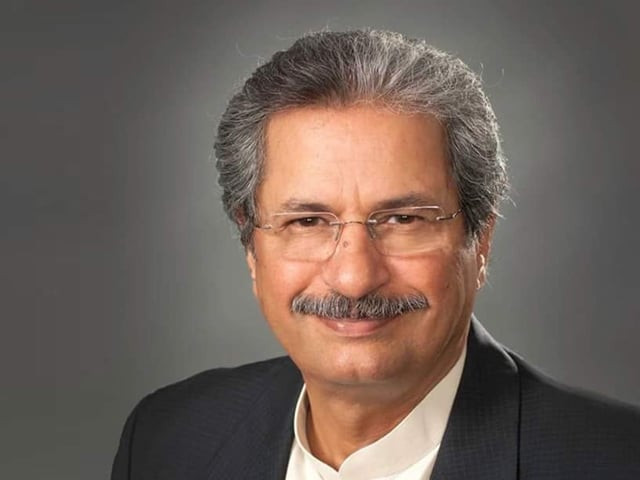Digital education must to improve literacy rate
Education minister says smart schools programme can help bridge the digital literacy gap

Education minister says smart schools programme can help bridge the digital literacy gap. PHOTO: FILE
“Equipping the youth with digital skills is the government's top priority to maximise their learning ability,” Mahmood said while addressing a celebration ceremony of the Jazz Smart Schools Programme.
He appreciated the smart education project and said that his ministry will join hands with the private sector to replicate this programme in all schools of the country.
"We will be able to bridge the digital literacy gap in Pakistan with the help of such programmes," he remarked, adding that Pakistan’s literacy rate has been limited to only 58% since its inception.
VEON's Chief Executive Officer (CEO) Ursula Burns said digital education was the future and it was a good omen that the young generation was very keen to learn from their smart schools' programme.
The CEO hoped that this program would be encouraged across the country, adding that it was not only in line with the United Nations Sustainable Development Goals 2030 but also envisioned in the government's strategic vision 2025. A programme official said that over 28,000 girls in middle schools of Islamabad were taught under the programme. Further, over 800 women teachers were also trained to teach the existing curriculum using smart-learning solutions.
Education policy: UK offers support to tackle out-of-school children issue
He added that the programme had recorded significant improvement in five areas including student learning outcomes, teaching quality, student engagement, expanded use of technology, and improved accountability and monitoring of results.
The official said that pre-tests were organized for all 20,000 students in the programme to evaluate their current learning levels based on subjects they studied in previous grades. The internal mid-term evaluation results had recorded remarkable improvement in student learning outcomes, he added.
Published in The Express Tribune, April 16th, 2019.



















COMMENTS
Comments are moderated and generally will be posted if they are on-topic and not abusive.
For more information, please see our Comments FAQ